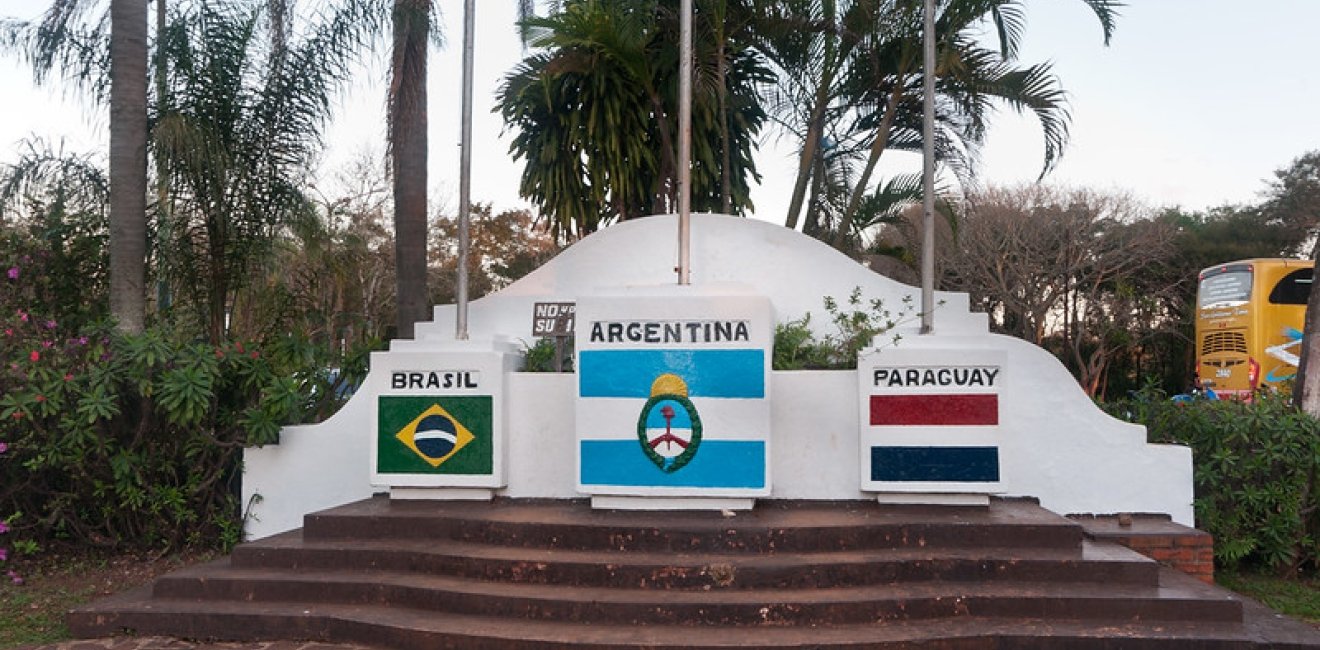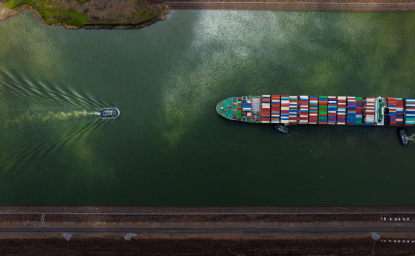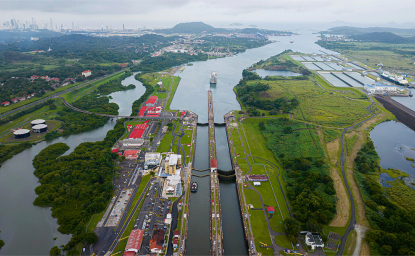Q&A with Alison August Treppel
Executive secretary of the Organization of American States’s Inter-American Committee against Terrorism (CICTE)
Q: Iran attracted international attention for its alleged role in an attack on Saudi oil fields in September, increasing global tensions. As a result, there is a heightened focus on Iranian-backed organizations in the Middle East and beyond, including Hezbollah, which maintains a longstanding presence in the Tri-Border Area (TBA) between Argentina, Brazil and Paraguay. Recently, Argentina designated Hezbollah a terrorist organization, with Brazil mulling similar action. What is the history of Hezbollah in the TBA? What is the extent of its presence, and what are its main objectives in the region?
A: The Tri-Border Area (TBA) has long been considered a hub for criminal activities: arms and drug trafficking; smuggling of goods; counterfeited documents and currency; money laundering; and the movement of pirated goods. The geographical proximity of the three main urban centers in the TBA – the Brazilian city of Foz do Iguaçu, the Paraguayan city of Ciudad del Este and the Argentine city of Puerto Iguazu – facilitates the work of criminal and terrorist groups, who take advantage of the vulnerabilities of the local public institutions. Furthermore, beyond exploiting the area for criminal purposes, Argentine authorities believe the two most devastating terrorist attacks committed on South American soil – the bombing of the Israeli Embassy in Buenos Aires in 1992 and the Argentine-Israeli Mutual Association (AMIA) in 1994 – were organized and planned by Iran and Hezbollah in the TBA.
At the World Jewish Congress in 2017, Luis Almagro, secretary general of the OAS, highlighted that the TBA “has long been known as a source for Hezbollah financing.” In 2019, on the 25th anniversary of the terrorist attack against the AMIA, the secretary general urged member states to designate Hezbollah as a terrorist organization. He warned against the belief that there is no terrorism in the region, recognizing the seriousness of its threat to democracy. By establishing the connection between terrorist groups and organized crime, and how both are funded through the trafficking of drugs, arms and persons, he emphasized their destabilizing effects on the democracies of the hemisphere.
An example that showcases the reported relationship between transnational organized crime and terrorism was the 2018 decision by the Financial Information Unit (FIU) of Argentina to freeze the assets of individuals belonging to an organization with alleged ties to Hezbollah, operating in the TBA. The organization, known as “Clan Barakat,” was involved in smuggling, money and document counterfeiting, extortion, trafficking of drugs and weapons, money laundering and terrorism financing. In July 2018, the Argentine FIU detected their attempts to launder $10 million at a casino in Iguazú, Argentina.
In July 2019, Argentina became the first state in Latin America to designate Hezbollah as a terrorist organization. After its decision, it froze assets belonging to the organization and its identified members. The next month, Mario Abdo Benítez’s administration in Paraguay followed suit, signaling a shift in the region’s attitudes towards the threat of terrorism. Although Brazil is reportedly considering joining its neighbors, there is no official confirmation. In July 2019, the Second Hemispheric Ministerial Conference on the Fight against Terrorism brought together participants from 16 OAS member states. The conference’s joint communique highlights concern “about Hezbollah networks’ activities in some areas of the Western Hemisphere.”
Q: The Organization of American States (OAS) helps combat terrorism in Latin America through its Inter-American Committee against Terrorism (CICTE). Established in 1999, CICTE is the only entity of its kind in Latin America. In the CICTE Work Plan for 2019-2020, your organization commits to preventing terrorism financing in the TBA. Is it difficult to promote and facilitate coordination between the three TBA governments? How does the OAS help overcome that challenge? What is the role of the United States, which has also prioritized this issue in its regional relations?
A: Since its establishment over 20 years ago, CICTE has implemented numerous projects to support OAS member states in their efforts to prevent and counter terrorism and its financing. Thanks to the rapport and trust built between CICTE and Argentina, Brazil and Paraguay, efforts are underway to bring these three countries together to address terrorism financing in the TBA. To overcome differences in sensitive matters such as legislation or border control practices, CICTE facilitates cooperation and coordination. For example, by facilitating information exchanges and the adoption of international standards for money laundering and terrorism financing, CICTE is increasing the security for these three nations, and the region as a whole.
In November 2019, CICTE again brought together the governments of the region to discuss these issues. The meeting, hosted by the Argentine Foreign Ministry, drew high-level officials from the region to discuss a new initiative, “strengthening operational capabilities for preventing and combating ML/FT in the Tri-Border Area.” Through the program, the OAS seeks to assist Argentina, Brazil and Paraguay in the development of harmonious legal frameworks, consistent with relevant international standards, to strengthen counter-terrorism efforts. CICTE also aims to provide capacity building for the prevention, detection and investigation of money laundering and terrorism financing operations; training for law enforcement personnel on special investigative techniques; and information on common methods and typologies for the identification of emerging threats in the TBA.
These efforts follow a 2015 report by CICTE that focused on the risks of money laundering and terrorism financing in three free trade zones in the hemisphere, including Ciudad del Este in Paraguay. Besides identifying threats and vulnerabilities in the trade zones, the report provided regional typologies, red flags and best practices to help develop efficient policies and cooperation to prevent money laundering and terrorism financing.
Q: Presidents Mauricio Macri of Argentina and Jair Bolsonaro of Brazil have emphasized national security, particularly border control. In July 2018, for example, Mr. Macri redefined Argentina’s strategic objectives and increased the military presence at the northern border to fight drug trafficking. In January 2019, the TBA countries and the United States discussed the potential revival of the 3+1 Group, a joint effort to address governance challenges in the TBA. With more focus – and in some cases additional resources – for the border region, have you observed any significant change in the security situation in the TBA? Have criminal actors adjusted their tactics?
A: The “3+1 Group on Tri-Border Area Security” brought together the governments of Argentina, Brazil, Paraguay and the United States in 2002 with the goal of strengthening security in the region. After a hiatus, there are reports of discussions between the TBA nations and the United States about relaunching the 3+1 Group. However, the designation of Hezbollah as a terrorist organization, and talks about increased security cooperation through a 3+1 mechanism, are far too recent to produce significant changes in the security situation in the TBA.
Q: Argentina’s president-elect, Alberto Fernández, did not emphasize border security in his campaign, and it does not figure highly on his policy agenda. Meanwhile, tensions between Argentina and Brazil may soon increase, as Mr. Bolsonaro has criticized Mr. Fernández, and even threatened to leave Mercosur. Would diplomatic tensions between Argentina and Brazil complicate OAS counterterrorism efforts? Would you expect Mr. Fernández to reevaluate his posture toward security issues and the TBA?
A: CICTE’s role in supporting OAS member states’ efforts to achieve international standards in their fight against money laundering and terrorism financing is independent from changes in government. It is a given that any administration sets its own agenda and priorities. It is also true that international legal obligations on counter-terrorism bind governments regardless of their domestic politics.
Terrorism is a transnational phenomenon that requires increasingly close cooperation among the countries of the hemisphere, and CICTE is proud to carry out its mission to promote and facilitate this coordination and collaboration. We value the effective exercise of democracy in the region, and will continue to work towards our goals, supporting all member states in their efforts to fight terrorism.
Photo credit: Rafaelle Nicolussi / Flickr
Author


Latin America Program
The Wilson Center’s prestigious Latin America Program provides non-partisan expertise to a broad community of decision makers in the United States and Latin America on critical policy issues facing the Hemisphere. The Program provides insightful and actionable research for policymakers, private sector leaders, journalists, and public intellectuals in the United States and Latin America. To bridge the gap between scholarship and policy action, it fosters new inquiry, sponsors high-level public and private meetings among multiple stakeholders, and explores policy options to improve outcomes for citizens throughout the Americas. Drawing on the Wilson Center’s strength as the nation’s key non-partisan policy forum, the Program serves as a trusted source of analysis and a vital point of contact between the worlds of scholarship and action. Read more





